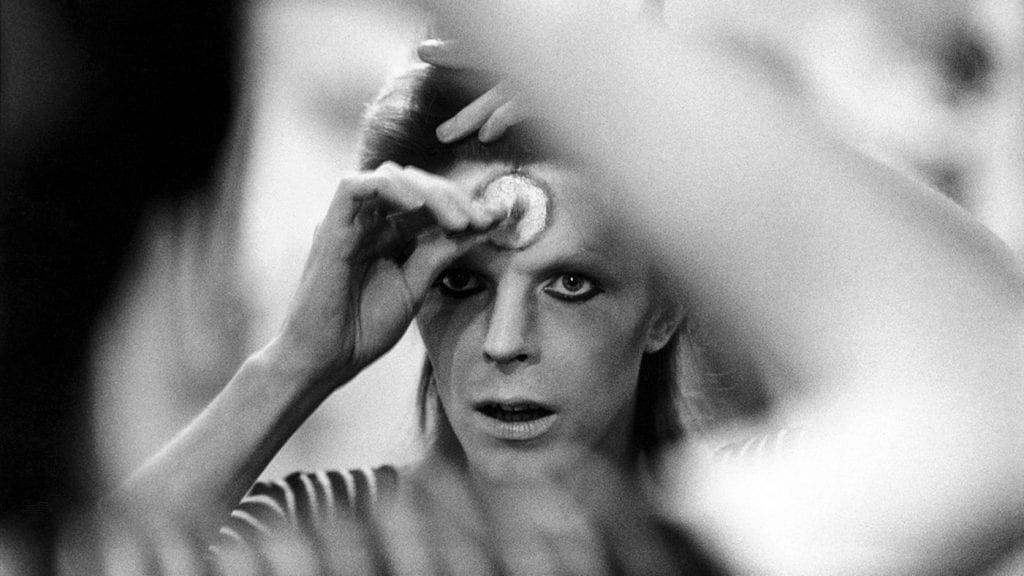
Transgressive, irreverent. Innovative. With these qualifiers the life of this British artist could be summed up, one of the most influential figures in Anglo-Saxon pop culture of the last five decades.
We must not fall into simplicity and speak only of musical influence, because David Bowie is that and many other things.
Biographical Notes on David Bowie
Among the great artistic geniuses the XNUMXth century gave us, Bowie is the least classifiable in a single category. It is clear that he made records and is well known for it. But the music was for him alone a channel for the construction of different characters, to express all kinds of feelings and give free rein to their imagination and their transformations.
Born David Robert Jones in London on January 8, 1947, the same day as Elvis Presley, but 12 years later. When at 18 it was clear that I wanted to be a superstar, He adopted the surname Bowie to avoid confusion with Davy Jones of the band Monkees.
His rise to fame occurred in 1969. S it became his first big hit.

In 1975 he entered the US market with the topic Fame, which he composed with John Lennon.
Between S y Fame his alter ego appeared Ziggy Stardust, a character he used to promote his politically incorrect side.
On a musical level, his career was a constant exercise of innovation and experimentation. His baritone voice ranged smoothly from Glam Rock and from "more commercial pop" to Soul or Drum and Bass.
His musical production was very extensive: 140 million records sold worldwide, 9 Platinum Records, 11 Gold and 8 Silver in the United Kingdom; 7 Gold and 5 Platinum Records in the United States.
According to Rolling Stone Magazine, among the 100 Greatest Rock Artists of All Time, Bowie ranks number 39, as well as the ranked # 23 on the list with the best singers.
During his teens, he founded The Society for the Prevention of Cruelty to Men with Long Hair, getting to be interviewed on the BBC to talk about the work that this group was trying to promote.
In 2003, to finish cementing his aura of incorrigibility, refused to be appointed as a Knight to the Queen of England
Transgression as a Marketing Strategy
Regardless of his declared bisexuality, the truth is that David Bowie was one of the first figures in openly use scandal as a marketing strategy. There was no modesty or taboos in any sense.
Every time he had the opportunity or someone asked him in an interview, he spoke openly about his encounters with men during their school days.
Some of his biographers maintain that the artist may have been interested in the homosexual world, even with curiosity and a willingness to experiment. However, deep down it all boiled down to commercialize a character that was always on the lips of many people. He was still a created character, a product that had to be nurtured.
Discography
David Bowie's prolific career left 28 studio albums, nine live recordings, 46 compilation discs (so far), 6 EPs, 110 released singles and 3 soundtracks.
Studio albums

David Bowie (1967). Although it was not the first work released by the artist, it did mark his official debut for his stage name. An anecdotal record, without any significance
Space oditty (1969). This album is the prelude to everything that would be the singer's musical career. Mix of many things (folk, ballads, progressive rock) without a coherent meaning. The homonymous single was used by the BBC for the broadcast of the arrival of man on the moon.
The men who sold the world (1970). Many music historians hold that while Space oditty put David Bowie on the map, this work represents officially the start of his musical printing press.
Hunky Dory (1971). As in his previous work, Bowie took this, his fourth album, into the grounds of Glam Rock. Also established as a composer, wrote almost all the songs.
The rise and fall of Ziggy Stardust and the spiders from mars (1972). For many, Bowie's best concept work and Glam Rock reference album. Ziggy Stardust is a bisexual alien, alter ego of the singer himself, whose story is told among the songs on the album.
Aladdin sane (1973). David Bowie was already a superstar, as well as controversial and innovative, so the public expected a lot from him. This album still keeps its fans divided around its quality today.
Pin Up (1973). This was a cover album, including songs from Pink Floyd, The Who and Bruce Springsteen, among others.
Diamond Dogs (1974). Almost all the songs composed by Bowie himself, starting with the novel 1984, written by George Orwell.
Between the 70s and the 80s
Young americans (1975). Glam Rock was put aside and the adventure for Soul begins. Includes single Fame, written and produced hand in hand with John Lennon, who also contributed backing vocals and guitar.
Station-to-Station (1976). Considered by many to be one of his best works, his production coincided with a strong addiction to cocaine, which is why, in the words of the singer himself, he did not know very well what he was doing.
low (1977). This was the first of his three collaborations with Brian Eno known as The Berlin Trio. It would mark the transition to synthesizers.
Heroes (1977). The single that gives its name to this work (full of unusual optimism) is one of the best known of his entire career. It tells the love story of a couple divided by the Berlin Wall.
Lodger (1979). Less experimental and more pop, it's one of the least valued jobs of the London star.
Scary monsters and super creeps (1980). Experimental work, well received by critics, as well as commercially successful, something that had not been happening with the previous works of the artist.
let's dance (1983). This album represents David Bowie more pop, for a reason it is his work with the most copies sold.
The second half of the 80s, David Bowie evolves his music
Tonight (1984). The most remembered of this work were the Tina Turner collaborations, as well as the cover of the song God only knows by Beach Boys.
never let me dawn (1987) More rock and less pop. Although this album turned out to be a tremendous commercial success, critics take it as part of the worst of his career.
Black tie white noise (1993). For some time Bowie tried it with a band called Tin Machine, an experiment that did not turn out very well. Returning to his superstar side, some of the songs narrate the The adventure that his marriage to the super model Iman Abdulmakid represented for the singer.
Outside (nineteen ninety five). Back to more commercial rock, it also meant a new meeting with Brian Eno.
Earthling (1997). One of the jobs with more industrial sound within the entire Bowie discography.
House (1999). A smoother disc compared to Eatling, at the sales level, it behaved discreetly. Although it was not a commercial failure, it was far from the usual level.
The XNUMXst century arrives
Heathen (2002). The first work of the new millennium represented for Bowie his return to the top of the world charts, as well as new recognition by international critics.
Reality (2003). Qualified work (even with derogatory connotations) as commercial.
the next day (2013). After almost 10 years without releasing original material, this album caught many by surprise, who believed that Bowie had quietly withdrawn. Number one in the UK and celebrated by critics.
Blackstar (2016). The Bowie's latest studio work it would arrive on his 69th anniversary and two days before his death.
The sentimental and personal life of David Bowie
With the arrival of the 90's, the attractive woman Iman comes into the life of the artist. Although it was not his first marriage, Bowie recognized that Iman had been love at first sight for him, and he was with her until his death, which occurred twenty years later.
In the year 2004, his health problems begin to worsen. He canceled his last tour, scheduled for that year, due to an emergency coronary operation.
David Bowie, a man who always did what "he wanted"
His death, according to the words of his relatives, was the living expression of that. He never made public that he suffered from liver cancer and did not stop working.

In addition to musician, composer and music producerHe was also an actor and in his spare time he devoted time to photography and painting.
His contributions to the history of music and culture in general are unquantifiable.
Bowie was a true artist, who carried the revolution permanently with him. He wanted to provoke and challenge all established conventions. From music, but also from fashion trends and sexuality. In addition to being the voice of an entire generation, his innate talent and limitless imagination they are a reference to the second half of the 10th century. He passed away on January 2016, XNUMX.
Asked on one occasion about his way of composing and producing, about the secret of his success, the artist would comment:
"What I do is very simple, it's just that my choices are very different from other people's."
Image sources: Billboard / Muzikalia / Art District / FreeGameTips.com